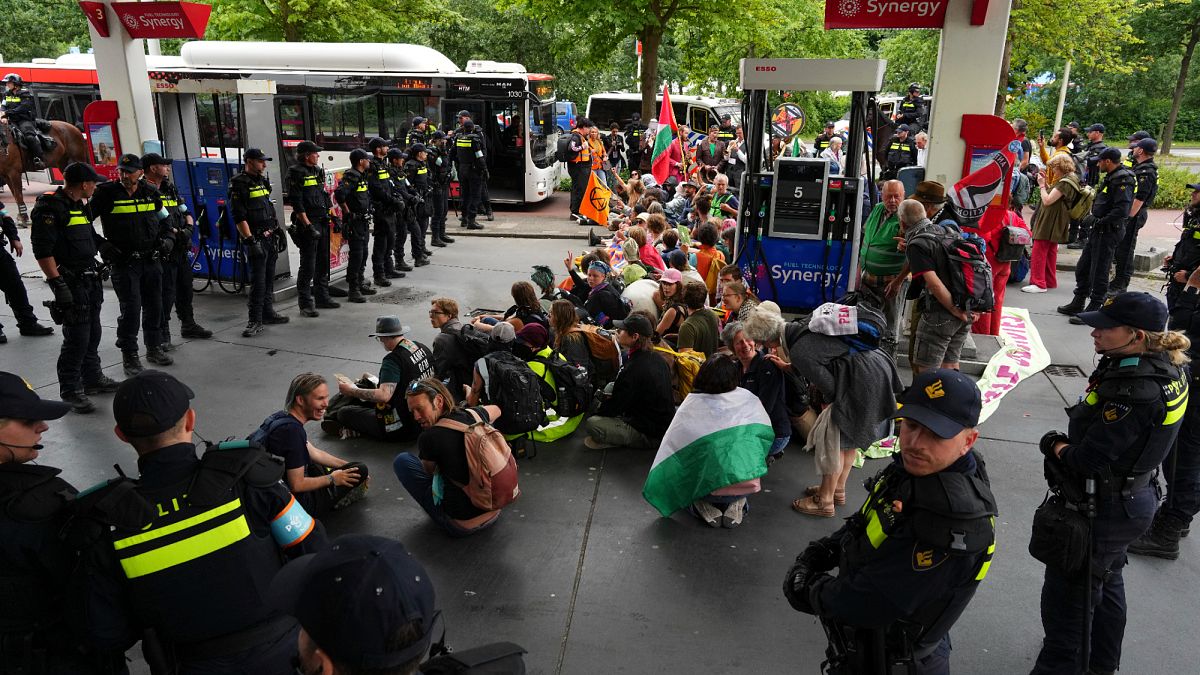The decision by the Federal Administrative Court in Leipzig not to ban the magazine Compact was a difficult one, according to Judge Ingo Kraft. "However, the Basic Law guarantees freedom of opinion and freedom of the press even to the enemies of freedom, trusting in the power of free social debate," he said on Tuesday, June 24.
The ruling is a defeat for former German Interior Minister Nancy Faeser who banned Compact magazine in 2024. She justified the move, saying: "It's a central mouthpiece for the right-wing extremist scene. This magazine incites against Jews, people with ethnic migrant backgrounds and against our parliamentary democracy in the most abhorrent way."
The judges now said there was reason to doubt whether freedom of the press and freedom of expression had been sufficiently taken into account in the ban. They argued that terms such as "remigration" and "cult of guilt" are covered by freedom of expression. This also applied to conspiracy theories and historical revisionist theories.
Compact sees itself as part of 'resistance movement'
A 2023 report from the Federal Office for the Protection of the Constitution (BfV), Germany's domestic intelligence agency, features an entire page dedicated to Compact — a magazine and multimedia company headquartered in Falkensee, on the outskirts of Berlin.
According to the BfV, the magazine's publisher says it sells 40,000 print copies a month. The number of subscribers to the Compact YouTube channel is significantly higher, at 513,000 as of June 10, 2025.
"Compact sees itself as part of what it calls the resistance movement, and it is seen by other actors among the so-called new right as part of the scene," the BfV wrote. "The main feature of many of its published articles is agitation against the federal government and against the current political system."
Still, Article 5 does put some limits on speech, saying, "These rights shall find their limits in the provisions of general laws, in provisions for the protection of young persons and in the right to personal honor."
Ties to extremist Identitarian movement
Examples cited by the BfV include abstruse conspiracy theories used to agitate against state institutions and pluralist society. "Historic revisionist content and antisemitic narratives round out the agenda," it added.
Moreover, the report said, the outfit maintains ties with right-wing extremist groups like the German Identitarian movement (IBD) and the eastern German regional party the "Freie Sachsen," or Free Saxons.
 Former Interior Minister Nancy Faeser banned Compact in July 2024Image: AFP
Former Interior Minister Nancy Faeser banned Compact in July 2024Image: AFPWanting to send a signal
Faeser had leaned heavily on the constitution, Germany's Basic Law, in calling for the right-wing extremist publication to be banned. Article 9 of the Basic Law, which regulates freedom of assembly, reads: "Associations whose aims or activities contravene the criminal laws or that are directed against the constitutional order or the concept of international understanding shall be prohibited."
Compact's editor-in-chief, Jürgen Elsässer, is a suspected right-wing extremist who belonged to the far left as a young man. Now in his 60s, Elsässer was once a member of the Communist Youth Wing and wrote for the newspaper, Arbeiterkampf (The Workers' Fight). He later worked as a reporter for other left-wing media, including Neue Deutschland (New Germany), which was a key news organ for the socialist East German government when the country was still partitioned.
 Elsässer (right) was joined in Leipzig by CompactTV boss Paul Klemm Image: Jan Woitas/dpa/picture alliance
Elsässer (right) was joined in Leipzig by CompactTV boss Paul Klemm Image: Jan Woitas/dpa/picture allianceImplications for attempts to ban the AfD?
After his victory in court, the Compact editor-in-chief was triumphant: "We have defeated the dictatorial tendencies." He also thanked the judges, who had weighed up all sides in a strictly objective manner, said Elsässer.
He also believes this is a good sign for all those seeking to ban the far-right Alternative for Germany party: "Because if it was impossible to ban Compact, it is also impossible to ban the AfD."
A ban on the party has been under discussion for years. In addition to the federal government, the parliament (Bundestag) and the chamber of the federal states (Bundesrat) could submit a corresponding application to the Federal Constitutional Court in Karlsruhe. So far, however, there is no majority for this anywhere.
What are Germany's limits on free speech?
This text was originally written in German. It was updated and republished to reflect latest develfopments.
While you're here: Every Tuesday, DW editors round up what is happening in German politics and society. You can sign up here for the weekly email newsletter, Berlin Briefing.

 4 hours ago
1
4 hours ago
1









